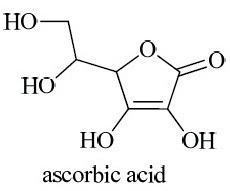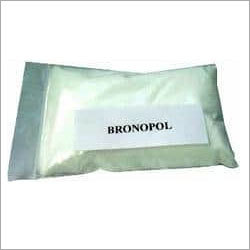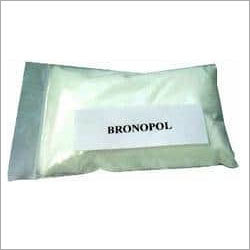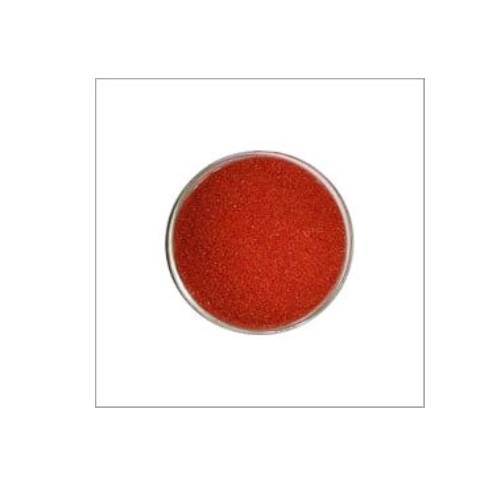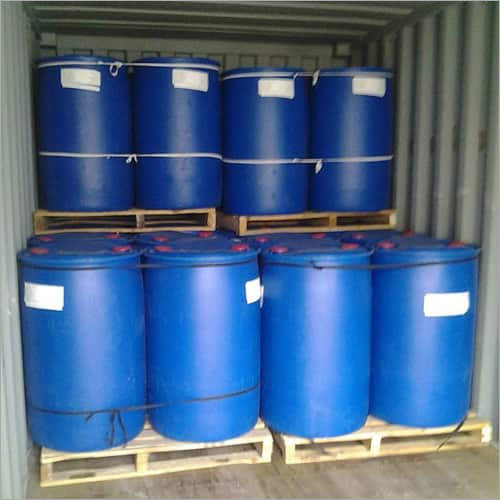Ascorbic Acid
Ascorbic Acid
The Ascorbic Acid offered by us is very useful in plants. The acid helps in providing the plants the needed nutrients specially vitamin C as the provided acid is an abundance of vitamin C. The acid is supplied by us in white color powder and is absolutely safe for use. It is hundred percent pure and does not harm or damage the plants in any way.
Product Details:
- Classification : Absorbent
- CAS No : 50-81-7
- Application : Agriculture Plant Growth
- Physical State : Powder
- Release Type :Controlled
- Product Type : Powder
- Storage : Cool & Dry Place
- Minimum Order Quantity : 25 Kilograms
Ascorbic Acid Properties:
1. Antioxidant: Ascorbic acid is a powerful antioxidant, meaning it helps to neutralize harmful free radicals in the body. Free radicals are unstable molecules that can damage cells and contribute to aging and diseases like cancer.
2. Collagen Synthesis: Ascorbic acid is necessary for the synthesis of collagen, a protein that is vital for the structure and function of skin, bones, teeth, and blood vessels. It helps in wound healing and maintaining healthy connective tissues.
3. Immune System Support: Vitamin C is known for its role in supporting the immune system. It enhances the function of various immune cells and helps the body defend against infections and illnesses.
4. Iron Absorption: Ascorbic acid enhances the absorption of non-heme iron (iron from plant-based sources) in the intestine by converting it into a more absorbable form. This property is particularly important for individuals who follow vegetarian or vegan diets, as plant-based iron sources are less readily absorbed than iron from animal products.
5. Neurotransmitter Synthesis: Ascorbic acid is involved in the synthesis of neurotransmitters such as dopamine and norepinephrine, which are important for mood regulation and cognitive function.
6. Antiviral Properties: Some studies suggest that high doses of ascorbic acid may have antiviral properties and could potentially help in reducing the severity and duration of viral infections such as the common cold.
7. Skin Health: Ascorbic acid is commonly used in skincare products due to its antioxidant properties and its role in collagen synthesis. It helps protect the skin from damage caused by environmental factors such as UV radiation and pollution, and promotes a more youthful appearance.
8. Water Solubility: Being water-soluble, ascorbic acid is easily absorbed in the body but not stored for long periods. This means that regular intake of vitamin C-rich foods or supplements is necessary to maintain adequate levels in the body.
Ascorbic Acid Applications:
1. Nutritional Supplements: Ascorbic acid is widely used in the production of dietary supplements to ensure adequate intake of Vitamin C, particularly for individuals who may have dietary deficiencies or specific health conditions.
2. Food and Beverage Industry: Ascorbic acid serves as a common food additive, primarily used as an antioxidant to prevent oxidation and maintain the color, flavor, and nutritional value of processed foods and beverages. It's often added to fruit juices, canned fruits, jams, and jellies, among other products.
3. Preservation of Food: Ascorbic acid is used as a preservative in food processing to extend the shelf life of products by inhibiting microbial growth and preventing spoilage. It's commonly used in the preservation of fruits and vegetables, as well as in meat and seafood products.
4. Bakery and Confectionery: Ascorbic acid is sometimes used in baking and confectionery to improve dough quality, enhance gluten formation, and increase the volume and texture of baked goods. It also helps to maintain the freshness of bakery products.
5. Cosmetics and Skincare Products: Ascorbic acid is a popular ingredient in cosmetics and skincare products due to its antioxidant properties and its role in collagen synthesis. It's used in various formulations such as serums, creams, and lotions to promote skin health, reduce the appearance of aging, and protect against environmental damage.
6. Pharmaceutical Industry: Ascorbic acid is used in pharmaceutical formulations for its therapeutic properties. It's commonly included in vitamin supplements, cold and flu remedies, wound healing products, and certain medications due to its immune-boosting and antioxidant effects.
7. Water Treatment: Ascorbic acid is sometimes used in water treatment processes to remove chlorine and chloramine, which are added to water for disinfection purposes. Ascorbic acid helps to neutralize these chemicals, making the water safer for consumption and other uses.
8. Photography: Ascorbic acid is used in some photographic developing solutions as a reducing agent to process certain types of photographic film and paper.
9. Industrial Applications: Ascorbic acid is utilized in various industrial processes, such as in the production of polymers and plastics, as a reducing agent in chemical reactions, and in the manufacturing of certain electronics and textiles.

